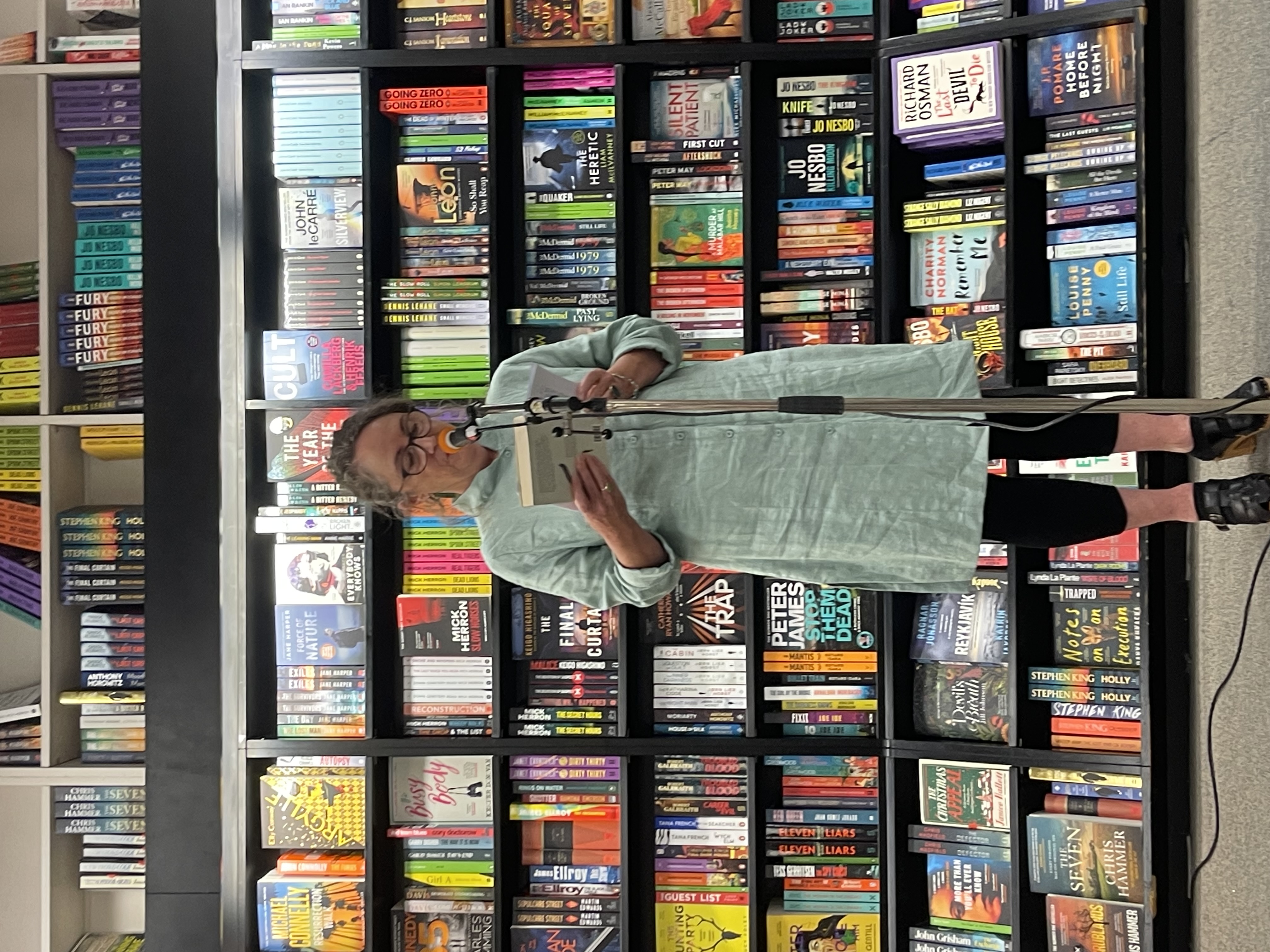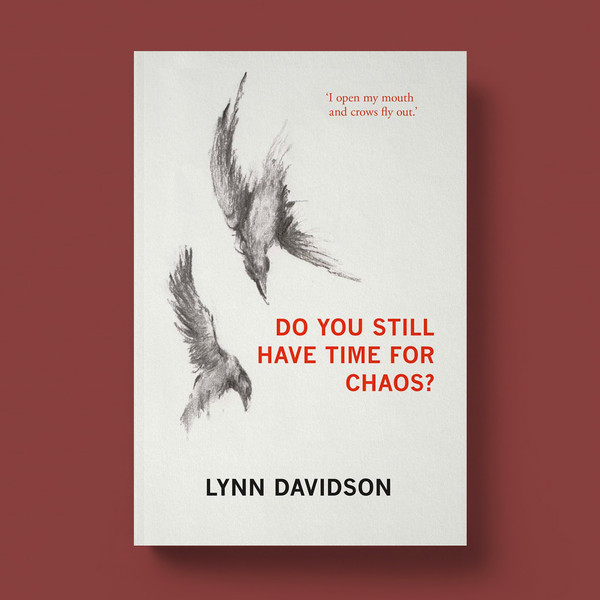'The ungoverned and the ungovernable': Launching a new memoir by Lynn Davidson
Posted by Ashleigh Young on 14th Feb 2024
On Tuesday 13 February we launched Lynn Davidson's new memoir, Do You Still Have Time for Chaos? at Unity Books Wellington. Thank you to Unity and to everyone who came along to celebrate, and congratulations Lynn!
Lynn Jenner, author of Dear Sweet Harry and Peat, wrote the following speech. She was unfortunately unable to be there on the night, so our publisher Fergus Barrowman delivered the speech on her behalf.
'Do you still have time for chaos?' This question was asked by a woman called Temperance Lloyd in 1682 when she and two other women had been tried as witches and were about to be hanged.(Jesse Jones,Tremble Tremble, 2017; Exhibition Guide, Talbot Rice Gallery, Old College, University of Edinburgh, 2018.)
Temperance Lloyd did not go to her death meekly or quietly. She laid down a challenge. You can have a safe life, do what the people running the world think you should do, or you can let chaos in, which some people think is a disaster. But chaos also brings the unknown. The ungoverned and the ungovernable. Perhaps chaos is the natural state of the universe, and it is the conventional order that is the unnatural state? And perhaps women do better out of chaos than they do out of the conventional order?
Three hundred and forty-two years later, Lynn Davidson is asking this same question. Do you still have time for chaos? Do you live what you hope is a ‘safe’ life in a nuclear family or do you let risk in? Do you live the way everyone expects, or do you take your life in the direction you feel most deeply?
A memoir is a wide doorway. In a memoir a writer can tackle any topic. But a memoir always speaks to the character and preoccupations of the writer. Lynn Davidson’s memoir has literature right at its heart so when you read this memoir you are given the character and preoccupations of the author in relation to creativity in prose written as carefully as a poem. The memoir moves backwards and forwards from literature and art and landscape and history to the author’s life. There’s a satisfyingly wide Bibliography at the back of the book for readers who want to follow up some of the work referred to.
One of the topics Lynn looks at is her great aunt Vida’s life, and she finds that for Vida the nuclear family was not at all safe. Vida, who lived in Scotland and was a mother of two children, found that while life outside of that family structure was sometimes also unsafe it occasionally offered her financial independence and validation.
Lynn’s life has not been the same as Vida’s but Lynn wants us to think about the relationship between these two lives.
In 2011 Ursula Le Guin wrote an essay called ‘Disappearing Grandmothers’ about the marginalization of women writers.These women from the writing past, Le Guin says, are not as visible to us as they should be because their existence and significance is obscured by the four processes of Denigration, Omission, Exceptionalising and Disappearance. (Words Are My Matter, Small Beer Press, 2016)
I think it’s interesting to apply Le Guin’s four processes to Vida. Vida was labeled insane. If she was spoken of in the family at all, it was as a ‘character’. She was treated as though being in a violent relationship was unusual and her fault, she lost custody of her children and finally she was left out of family traditions and events.
In her adult life Lynn also found that the family is not necessarily a safe shelter.
‘The great lie visited upon women is that the world is dangerous and it’s safer to stay home. That has not been my experience,’ Lynn says.
Lynn stepped outside of her own family’s expectations and raised her children for some time as a single parent. The nuclear family she says is both ‘a shelter and a prison’.
And what is there, waiting to be found outside of those traditional expectations?
Yes, there is a feeling of separation.
But outside you can be ‘a good mother and a citizen of the world. Someone you could take seriously.’ Outside of the expected life, Lynn says ‘I could find my own shape, listen to my own thoughts.’ Those thoughts are there, in the memoir.
Here is a different description of how chaos fits into Lynn’s world. This is Lynn speaking, in response to a poem by Else Lasker Schüler, a German Jewish anarchist poet who was famous in Berlin in the 1920s.
‘Our hearts are Bohemian, Lynn says, steeped in the colour and chaos and cost of what they love.’
If I was going to say just one thing about this memoir it would be that it is steeped in the colour and chaos and cost of what Lynn loves.
Lynn sees the world’s magic. For her art is never content or a commodity. Borrowing an idea here from Walter Benjamin, for Lynn works of art are tied to ritual and their aura includes a process of creation and the work’s journeys in the world.
Do You Still have Time for Chaos? documents its own process of creation. I believe its range of interests and its lyrical style make it unique in New Zealand literature, which is quite a claim. Now, tonight, this work is ready to begin its journey in the world.

Lynn Davidson (photo: Tayi Tibble)

